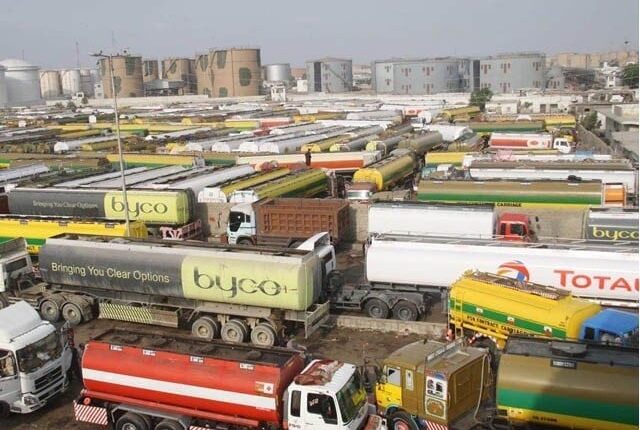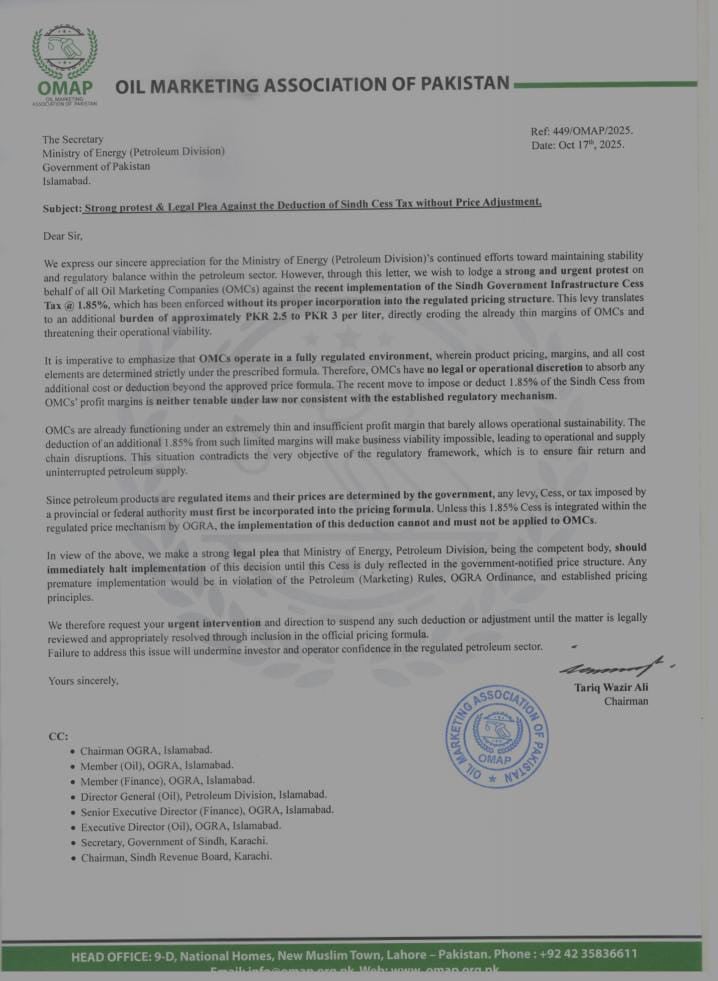Petrol Shortage Expected Nationwide After Sindh Enforces 1.8% Cess Levy
A new bottleneck at Karachi Port has arisen as the Sindh government’s decision to strictly enforce a 1.8% cess levy on petroleum imports has led to delays in fuel clearance at Karachi Port, threatening a potential nationwide fuel shortage.
Oil marketing companies (OMCs) warn that dozens of vessels carrying petrol and diesel are anchored offshore, awaiting customs clearance, as the provincial authorities demand 100% bank guarantees before releasing cargo.
First, what is a “cess” and SIDC?
In simple terms, a cess is an extra levy layered on top of regular taxes, typically justified as a funder for specific public works, in this case, “infrastructure development.” Sindh’s version, Sindh Infrastructure Development Cess (SIDC), is being applied to the import value of petroleum cargoes landing at Karachi. That rate, about 1.8%, sounds small until you apply it to ship-sized numbers.
For example, on a $60 million cargo, it’s more than $1 million in additional cost. Sources estimate this could add roughly Rs2.5–3 per litre if passed through to consumers.
Sindh Demands 100% Bank Guarantee for Clearance
The current flashpoint isn’t the tax; it’s how it’s being enforced. Sindh Excise has begun requiring a 100% bank guarantee for the SIDC before they release each petroleum cargo.
That means importers must get their banks to promise the full amount of the cess upfront, for every ship.
Karachi is the Choke Point
For context, almost all imported petroleum products enter via Karachi Port in Sindh. If petroleum cargo is stuck there, the entire country feels it. That’s why a provincial policy can trigger a nationwide crisis within hours.
Local media reports say enforcement of SIDC has already slowed or stalled petroleum clearances, prompting nationwide shortage warnings. Some outlets cite industry estimates that even once clearance resumes, the system could take up to two weeks to normalize.
Who Will Bear the Extra Cost?
Short answer: The end customer is likely to bear the cost.
Fuel prices in Pakistan are set by the federal government. Now Sindh has added a 1.8% cess. Oil companies say: if a province adds a new cost, the federal price should be changed to include it. If not, the companies must pay this extra cost from their own small margins, which is hard for them.
Because of this, the oil companies’ group, Oil Marketing Association of Pakistan (OMAP), has asked to stop taking this money until the official fuel price is updated.
If the price is not updated, the extra cost will either cut supply (because companies can’t afford it) or show up at the pump, which could mean about Rs 2.5-3 more per litre.


 The Oil Marketing Association of Pakistan (OMAP) has sent a formal letter to the Ministry of Energy (Petroleum Division) to strongly protest the deduction of Sindh’s 1.85% Infrastructure Development Cess (SIDC) without any change in the official fuel pricing formula.
The Oil Marketing Association of Pakistan (OMAP) has sent a formal letter to the Ministry of Energy (Petroleum Division) to strongly protest the deduction of Sindh’s 1.85% Infrastructure Development Cess (SIDC) without any change in the official fuel pricing formula.
Comments are closed.